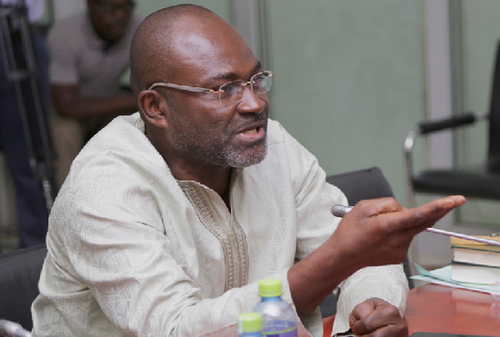Kennedy Agyapong’s vehement critique of the National Investigations Bureau (NIB) stems from their incursion into the private residence of Reverend John Ntim Fordjour, the Member of Parliament for Assin South. This incident, which transpired on April 9th, has drawn sharp condemnation from Agyapong, who views it as a blatant misuse of state authority to suppress dissent and silence those who dare to challenge the prevailing power structure. He expressed deep concern over what he perceives as an erosion of democratic principles and a dangerous precedent for the future of Ghana. Agyapong, a former Member of Parliament himself, emphasized Fordjour’s right to express his concerns, especially those pertaining to national security, without fear of intimidation or reprisal.
The core of Agyapong’s argument centers on the fundamental right to freedom of speech and the critical role it plays in a functioning democracy. He frames the NIB’s actions as a direct attack on this cornerstone of democratic governance. By targeting Fordjour, a vocal critic, Agyapong believes the state is sending a chilling message to others who might consider speaking out against perceived injustices or government overreach. He argues that such tactics create an atmosphere of fear and stifle open dialogue, ultimately undermining the very fabric of democratic society. Agyapong’s condemnation is not merely a defense of Fordjour; it’s a broader defense of the principles of free expression and the right to hold differing opinions without fear of persecution.
Agyapong commends the solidarity shown by fellow Members of Parliament and concerned citizens who rallied to Fordjour’s defense during the incident. He sees this collective action as a vital demonstration of democratic strength and a powerful rebuke of the NIB’s actions. This display of unity, he argues, reinforces the importance of collective vigilance in safeguarding democratic values and resisting attempts to suppress dissent. The support offered to Fordjour signifies a shared commitment to protecting fundamental freedoms and a refusal to be intimidated by displays of state power. Agyapong emphasizes that this collective spirit is essential to preserving the integrity of Ghana’s democratic institutions.
While acknowledging that political disagreements are inevitable, Agyapong draws a clear line at the use of state institutions to silence opposing viewpoints. He argues that resorting to such tactics not only erodes public trust in government but also sets a dangerous precedent for the future. Agyapong’s stance highlights the critical distinction between legitimate political discourse and the abuse of power. He emphasizes that healthy democracies thrive on open debate and the free exchange of ideas, even when those ideas are critical of the government. By using state apparatus to stifle dissent, Agyapong argues, the government undermines its own legitimacy and creates an environment of fear and mistrust.
Agyapong directly addresses Fordjour, urging him to remain steadfast in his convictions and to continue speaking out on matters of national importance. He recognizes the courage it takes to challenge authority, especially in the face of intimidation, and encourages Fordjour not to be deterred by the NIB’s actions. This encouragement underscores Agyapong’s belief in the importance of individual voices in holding power accountable. He sees Fordjour’s willingness to speak out as a vital contribution to the democratic process and urges him to continue this important work despite the risks involved.
In his concluding remarks, Agyapong calls for a collective effort to transcend fear and restore faith in Ghana’s democracy. He believes that the incident involving Fordjour is a wake-up call, highlighting the fragility of democratic institutions and the constant need for vigilance. His message is a call to action, urging citizens to actively defend their rights and to hold their government accountable. Agyapong’s final plea emphasizes the importance of civic engagement in preserving and strengthening democratic values. He calls for a renewed commitment to open dialogue, respect for dissenting opinions, and a collective effort to ensure that the principles of democracy are upheld and protected for the benefit of all Ghanaians.














